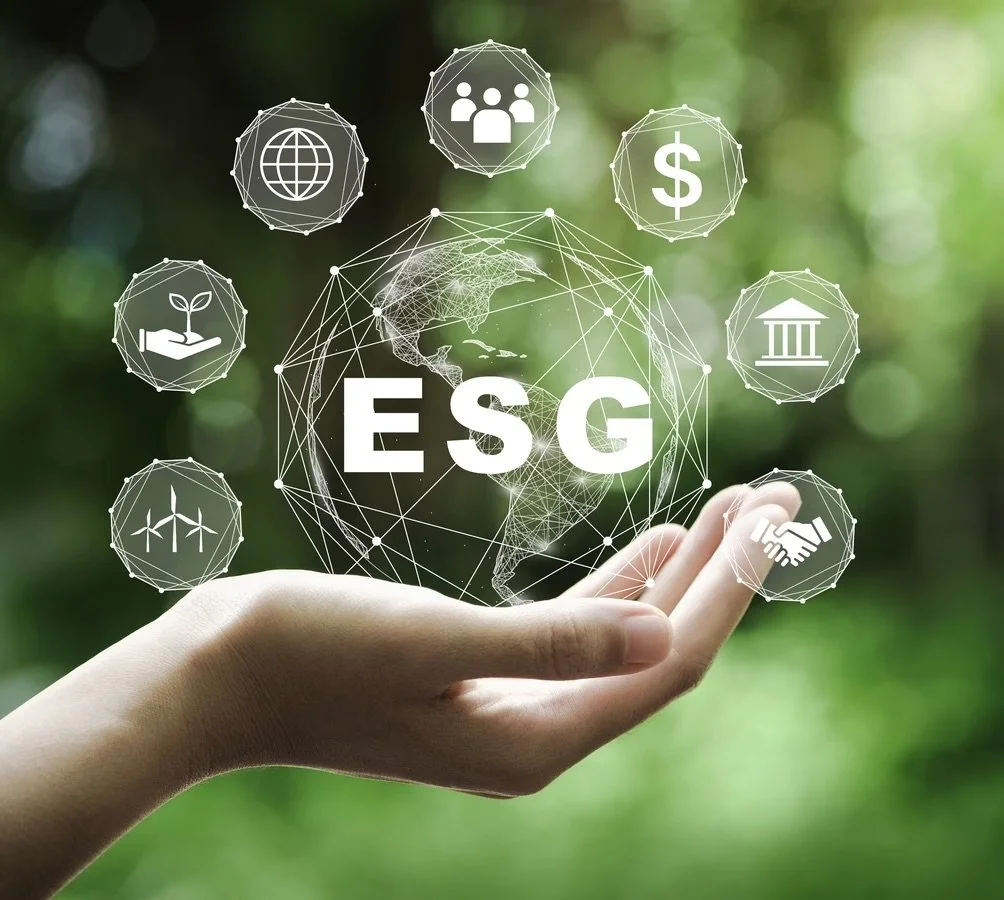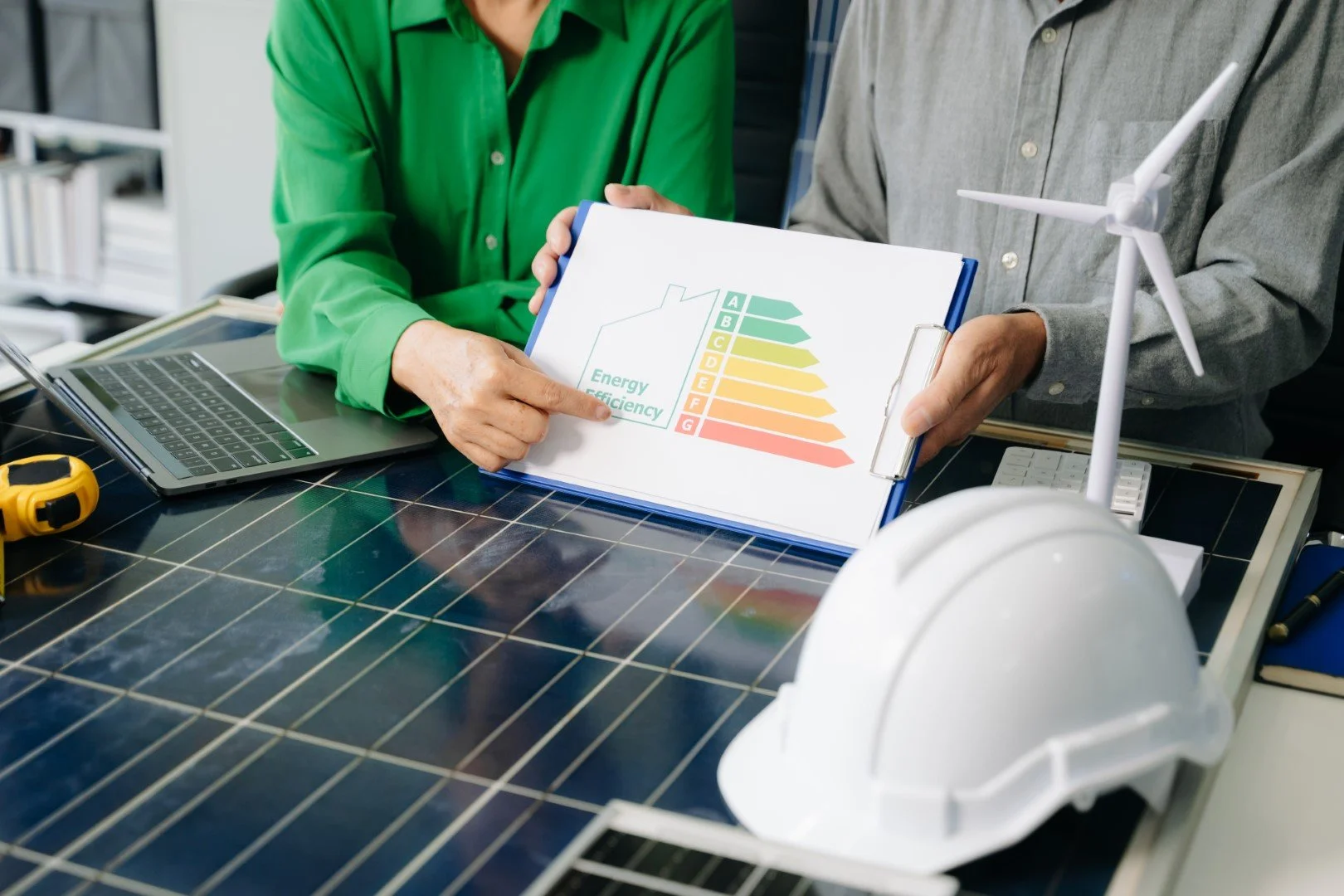
Insights
Welcome to Insights, your source for expert advice on energy efficiency and city compliance. Explore our blog for the latest tips, trends, and regulatory updates to help you stay informed and efficient.

Why Utility Rates Are Outpacing Inflation — and What That Means for Building Strategy
Learn why utility costs are outpacing inflation and how building owners can protect NOI and reduce expenses through audits, efficiency upgrades, and strategic compliance.

The Rise of Performance-Based Codes: Why Efficiency Scores Matter More Than Reports
Cities across California are shifting from simple reporting requirements to performance-based energy codes, and the change is reshaping how building owners must think about compliance. Submitting a benchmarking report is no longer enough. Regulators now look at how well a building actually performs, how efficiently it operates, and whether owners are making measurable improvements over time. This blog explains why efficiency scores now matter more than paperwork, how performance-based standards are influencing property value, and what owners can do today to prepare for stricter city mandates.

The Future Tenant: Why Energy Performance is Becoming a Leasing Priority
As California’s building performance standards evolve, transparency in energy data is reshaping how owners, investors, and tenants value real estate. With new benchmarking and disclosure rules across Los Angeles, San Francisco, and Berkeley, energy performance is no longer just a compliance metric—it’s a business signal. This article explores how data-driven insights are influencing property investment decisions and how proactive owners can leverage compliance efforts into strategic advantages.

What The End of 2025 Means for Building Owners
Learn how EBEWE, BPO, and other California energy laws affect building owners as 2025 comes to a close. Find out how early action can cut costs, avoid fines, and boost value.

From Data to Decisions: How Benchmarking Leads to Smarter Investments
Discover how energy benchmarking turns compliance into strategy. Learn how EBEWE, San Francisco, San Jose, and Berkeley programs drive smarter investments.

Qualifying For Base Building Exemption: What Owners Need To Know
Learn how to qualify for a Base Building Exemption under LA’s EBEWE program. Save money, avoid unnecessary audits, and streamline energy compliance.

Energy Compliance and ESG: Why Investors Are Paying Attention
Discover how energy compliance programs like EBEWE and BESO align with ESG goals, boosting NOI, tenant demand, and investor confidence.

Mastering Energy Compliance: A Guide to California’s EBEWE, BPO, BESO & AB 802 Programs
Mastering Energy Compliance with Inland Empire Energy: your guide to navigating California’s EBEWE, BPO, BESO & AB 802 programs seamlessly.

How EBEWE Exemptions Can Reduce the Cost of Your Audit
Many Los Angeles building owners are surprised to learn that not every property must go through a full energy and water audit under the EBEWE program. Depending on your building type, past efficiency improvements, or performance metrics, you may qualify for exemptions that save time and money. In this post, we break down the most common exemptions—such as ENERGY STAR certification, LEED status, or recent retro-commissioning—and explain how to determine if your building is eligible. Even if you qualify for an exemption, proper documentation is essential to avoid penalties. Our team at Inland Empire Energy helps building owners confirm eligibility, gather paperwork, and lower compliance costs.

How Energy Compliance Drives Decarbonization
Energy compliance is reshaping sustainability in California’s cities. From benchmarking to audits, local ordinances are turning data into action—cutting emissions and improving building performance. This blog explores how compliance drives decarbonization and helps owners future-proof their assets. Learn how to turn regulatory requirements into strategic upgrades that benefit both the planet and your bottom line.

From Benchmarking to Retro-Commissioning
With Los Angeles’ EBEWE ordinance in full effect, compliance means more than submitting reports—it’s about using your data to drive real improvements. At Inland Empire Energy, we help building owners turn benchmarking into action through audits, retrofits, and smart planning.
From identifying inefficiencies to managing documentation, we make compliance simple—and cost-effective. Ready to go beyond the minimum? Contact us for a free compliance review.

Why Small Firms Are Winning the Customer Service Game in Energy Compliance
In the fast-paced world of energy compliance, small firms are quietly outperforming their larger counterparts—not with size, but with service. From faster communication and tailored solutions to competitive pricing and deeper accountability, small energy compliance companies are proving that personalized support and agility matter more than ever. As regulations tighten and deadlines loom, building owners are discovering that when it comes to customer service, smaller really can mean smarter.

Why Energy Benchmarking Isn’t Just a Box to Check – It’s a Strategy
In California’s tightening regulatory landscape, energy benchmarking has evolved from a compliance task into a strategic advantage. Cities like Los Angeles, San Francisco, San Jose, and Berkeley now require property owners to track and report energy and water usage—but those who go beyond the checkbox can unlock operational savings, boost property value, and access valuable incentives. Benchmarking isn’t just about meeting mandates—it’s about making smarter decisions for a more efficient, sustainable future.

Energy Benchmarking Requirements Throughout California: A City-by-City Guide
California leads the nation in energy efficiency, and energy benchmarking is a key part of that progress. This guide breaks down the statewide AB802 law and local ordinances in Los Angeles, San Francisco, and San Jose—helping property owners understand compliance deadlines, avoid fines, and improve building performance.

How to Choose the Right Energy Auditor for EBEWE Compliance
If you own a commercial building over 20,000 sq. ft. in Los Angeles, you're required to comply with the EBEWE Ordinance—this includes an ASHRAE Level II Energy Audit and retro-commissioning every five years. Inland Empire Energy makes compliance easy with certified audits, integrated RCx services, and transparent pricing. Our expert team delivers actionable insights to boost efficiency, cut costs, and enhance sustainability—all with top-tier customer service.

Missed SF Energy Audit Deadline? Here’s How to Stay Compliant
Missed San Francisco’s April 1st energy audit deadline? Don’t worry—there’s still time to avoid fines and stay compliant. Learn how Inland Empire Energy can help you extend your deadline by submitting proof of contract and navigating the city’s energy ordinance requirements with ease.

The ROI of Energy Audits: How EBEWE Compliance Can Save You Money
Energy audits for buildings in Los Angeles under the EBEWE ordinance offer substantial ROI. Required every five years for buildings over 20,000 square feet, these audits assess systems to identify inefficiencies. Compliance leads to lower utility bills and reduced maintenance costs. Inland Empire Energy provides affordable audits to help property owners achieve savings.

What Happens If You Miss the EBEWE Compliance Deadline?
Missing an EBEWE compliance deadline can lead to costly fines, legal notices, and long-term risks to your property’s value and efficiency. As a property owner, it's crucial to know the consequences of non-compliance, including daily penalties, public violations, and missed sustainability goals. Click here and learn how you can avoid these fines and how to get back on track if you've already missed compliance deadlines.

EBEWE Compliance and Its Effectiveness for Los Angeles
EBEWE compliance is a strategic approach that aligns with Los Angeles' sustainability goals. It promotes energy and water efficiency, leading to significant cost savings for building owners through reduced utility bills and enhanced property values. Embracing EBEWE compliance benefits both the individual and the community, making it a win-win strategy for all.

Harnessing Solar Power
Solar energy, through solar thermal water heating and photovoltaic (PV) systems, offers a clean and cost-effective way for commercial and multifamily buildings to reduce energy consumption and environmental impact. By harnessing the sun's power, these buildings can achieve significant energy savings, lower operational costs, and contribute to a more sustainable future.
